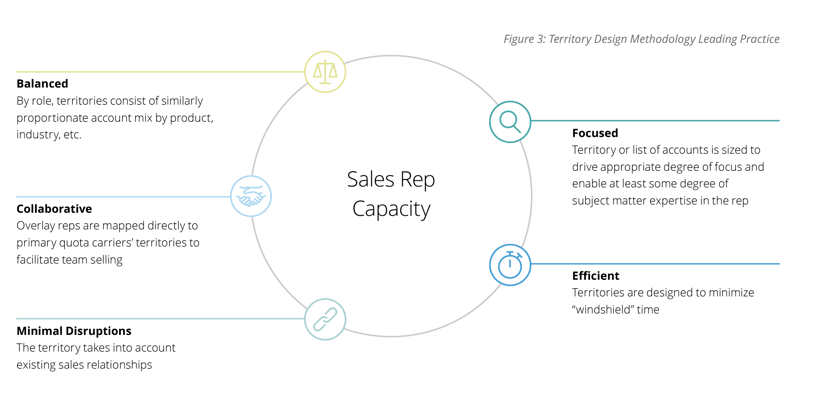
The Future of Loyalty in the Data Era
Increasingly sophisticated and personalized customer experiences...
Read moreInsights
Go to the BlogIn primo piano

The Future of Loyalty in the Data Era
Increasingly sophisticated and personalized customer experiences...
Read moreEnterprise Solutions
Recent Publications
Whitepaper

How artificial intelligence is revolutionising customer relations
Download the WhitepaperExtra
A new horizon for CRM
Automation and integration: apps

100% digital, fast and paper free processes
A new standard based on AI and HubSpot
Integrated and optimized e-commerce management with HubSpot
Exelab World
Where ideas and innovation meet
Texts to meet tomorrow's challenges
Discover our insights: visit the blog
Latest updates
Insights
Go to the BlogIn primo piano

The Future of Loyalty in the Data Era
Increasingly sophisticated and personalized customer experiences...
Read moreAbout Us
Innovation, excellence, technology: at Exelab we design the future of business processes
Exelab and The Client Group: an operational synergy to raise customer experience to the highest level
Careers
We are always looking for talent ready to make their mark: explore our opportunities
We're hiring!Exelab is an official partner of


Events
Discover our EventsMost Recent Event

Solutions
Enterprise Technology
HubSpot
Discover
About
Solutions

Exelab Solutions
Insights
Go to the BlogIn primo piano

The Future of Loyalty in the Data Era
Increasingly sophisticated and personalized customer experiences...
Read moreEnterprise Technology

Enterprise Solutions
Recent Publications
Whitepaper

How artificial intelligence is revolutionising customer relations
Download the WhitepaperHubSpot

Extra
A new horizon for CRM
Automation and integration: apps
Discover


100% digital, fast and paper free processes
A new standard based on AI and HubSpot
Integrated and optimized e-commerce management with HubSpot
Exelab World
Where ideas and innovation meet
Texts to meet tomorrow's challenges
Discover our insights: visit the blog
Latest updates
Insights
Go to the BlogIn primo piano

The Future of Loyalty in the Data Era
Increasingly sophisticated and personalized customer experiences...
Read moreAbout

About Us
Innovation, excellence, technology: at Exelab we design the future of business processes
Exelab and The Client Group: an operational synergy to raise customer experience to the highest level
Careers
We are always looking for talent ready to make their mark: explore our opportunities
We're hiring!Exelab is an official partner of


Events
Discover our EventsMost Recent Event


A strong operational capability is a priority for all businesses that have sufficiently planned their business strategies.
However, there is a key figure in customer interactions that corporate decision-makers often overlook: the Sales Representative.
In the past, Sales Reps were merely “simple” salespeople: their daily tasks involved face-to-face meetings with clients, closing contracts, and the processes of cross-selling and upselling.
Today, in contrast, these professionals are not just executors but are indeed planners of sales strategies, playing a crucial role in the fabric and business models of modern companies. We are not only talking about extensively globalized markets like the American one but also about Italy, which is pursuing increasingly ambitious growth and business objectives.
But to truly understand beyond the titles and role descriptions, who really is today’s Sales Representative? What challenges do they face in an ever-evolving job market, and what skills must they have to increase the impact and added value of their organization?
In this article, we will delve deeper, exploring the features, skills, and fundamental goals of a Sales Rep today.
The evolution of the Sales Representative: from a simple seller to a strategist of human relations.
“89% of customers say they are more inclined to consider a brand when the salesperson manages to revolutionize their way of thinking".
In the business landscape where speed, precision, and customization are at the heart of the customer experience, the Sales Representative stands out as a bastion of competence and relational ability. Far from being a mere "sales representative", today's Sales Rep is an architect of solutions, a figure who interprets the needs of clients even before they are articulated.
In the fabric of contemporary sales, the Sales Rep is a chameleon-like figure, adapting and evolving with market transformations. On one hand, they must deeply understand services and products; on the other, they must embody the company's values and mission, since the first impression of potential customers will depend on them.
And in this balancing act, the sales pipeline becomes both their battleground and navigation tool. Through it, the Sales Rep not only tracks but actively guides contacts through the intricate maze of sales stages, ensuring that every interaction is meaningful, relevant, and most importantly, leads to conversion.
The key to their success lies in their ability to combine human sensibility with data-driven analysis, demonstrating that in an increasingly technology-focused world, personal relationships remain at the center of every successful transaction.
In the report "Motivate top sellers and optimize results with a holistic Pay for Performance program," Deloitte proposes an efficient approach to maximize the customer coverage of Sales Reps. The model is called Territorial Design and allows an organization to ensure that every customer is served in the right way and with the ideal frequency, ensuring top customer satisfaction and loyalty and capitalizing on income opportunities.
A good territorial design is not just a map: it's an investment. It can maximize the return on investment, giving leaders the clarity to determine how much to invest in the field and where to hunt for the most profitable growth opportunities. And crucially, it ensures that every sales representative has a balanced and manageable workload, based on actual market opportunities.
But where to start? The first crucial step is to define a zone based on how these align with the market strategy and what the company offers, taking into account organizational limitations. Ask yourself: how will we decide to prioritize the various customer profiles when defining territorial zones? The selection criteria can vary depending on the business unit or region, given the different customer preferences, geographical needs, priority customer segments, and purchasing behaviors.
Managing complex pipelines in highly evolved scenarios.
"Sales professionals spend less than a third of their time (30%) on actual selling, devoting most of their time to administrative activities and other non-sales related tasks.” - from HubSpot's Sales Report 2023.
This insight might be surprising, but it's emblematic of an environment where sales dynamics have evolved. In an era marked by digital scenarios, big data, and AI, the sales pipeline is no longer just a list of contacts. It's instead a complex web of interactions, touchpoints, and strategic decisions. The modern Sales Representative must navigate this intricate ecosystem, balancing automation with a human approach, ensuring that every contact is optimally managed.
Data analysis plays a pivotal role. The Sales Rep must interpret often bulky and complex information, spotting trends, anticipating needs, and recognizing opportunities. But beyond the data, true expertise lies in adaptability: changing strategy when needed, tailoring the approach to the client, and always keeping an eye on the ultimate goal - conversion.
We might mistakenly think that digitization has simplified the task of the Sales Representative; in reality, it has raised the role to new challenges. Now, besides being frontline sellers, they're navigators of complex ecosystems, data analysts, and more than ever, ambassadors of corporate value in a rapidly changing market.
Let's look at some of the tasks a Sales Rep undertakes in their daily routine:
Key skills and qualities of a central figure for business objectives.
"With rising customer expectations, sales representatives must further broaden their research routine, adding administrative time and tasks to their daily schedule.” - from HubSpot's Sales Report 2023.
For today's sales representative, becoming a genuine ally in problem-solving is the key to success. True professionals in the field do more than just push their product: they listen genuinely, demonstrate empathy, and strive to understand their clients' complex challenges. If they can't provide the right solution, they have the integrity to admit it, even suggesting better alternatives.
Alyssa Merwin, Vice President of Sales Solutions at LinkedIn, highlighted this essential trait in the ideal sales representative profile. The art of listening and the ability to connect emotionally are central in a trade steeped in communication. And what other skills are indispensable for Sales Reps we consider including in our organization?
Every day, a sales rep faces challenges like cold-calls and intense negotiations. Maintaining composure, avoiding conveying nervousness, is vital. Self-control isn't just desirable; it's crucial to build and maintain customer trust.
Interestingly, 60% of potential customers decline an offer four times before accepting it. Yet, 48% of sales reps give up after the first refusal. Targeted persistence can make the difference between a missed and a successful sale.
A proficient sales rep knows the value of time and accounts for it in every task they undertake. The difference is stark: an average-performing sales rep spends 2 hours a day on profit-generating activities, compared to the 6 daily hours of a top-performing colleague.
Deep knowledge of the product or service is just the beginning. A sales rep must also function as a consultant, providing valuable insights and industry-specific support to the client.
From Salesforce's State of Sales Report, we see that 57% of top-performing sales representatives operate analytically, making the most of the data produced by company software and tools. This percentage contrasts with less productive industry colleagues, of whom only 16% work this way.
Offering such company tools to Sales Reps, like CRM software, is foundational to an effective and profitable sales method.
Surprisingly, a touch of pessimism can actually enhance sales performance. The best professionals aren't fooled by evasive answers, always striving to reach the real decision-makers. This insight is confirmed by an analysis from the Harvard Business Reviews.
The University of Missouri conducted a study on the auto insurance industry to better understand what drives sales success. The research examined 538 agents from a regional insurance company in the Midwest, focusing on their ability to generate and convert potential clients over a two-year period.
Key findings from the research include:
Effective Prospecting: Experienced representatives tended to identify fewer potential clients than newcomers. However, they were more adept at converting these potential clients into actual customers.
Motivation: Both intrinsic and extrinsic motivation play a crucial role in effective prospecting and conversion. Intrinsically motivated agents tend to perform better in both prospecting and conversion.
Use of Advertising: Experienced agents benefitted more from advertising than their less experienced counterparts, using ad messaging to boost their sales-closing abilities.
Recommendations for Managers: Managers should consider the individual effectiveness of each salesperson at different stages of the sales funnel. It is ill-advised to rigidly divide roles between prospecting and sales closing based solely on experience. Moreover, it's vital to seek representatives with strong intrinsic motivation and use external motivators to enhance the prospecting efforts of experienced agents. Advertising spend should lean more towards experienced agents but in a balanced manner.
Lesson to be learn:
Understanding the entire sales process is crucial. Too many managers focus solely on end results. The research underscored the importance of balancing the approach between generating new leads and converting these into actual customers, highlighting the significance of motivation and advertising in the process.
Key skills and experiences for the new age of sales.
The sales landscape is continually evolving, and with the rising number of competitors offering niche SaaS solutions, having a strong sales process is crucial. Jayme Manos, the Executive Manager of Enterprise Sales at HubSpot, emphasized (in the Sales Trends report) the importance of a robust sales process, especially when representatives push for a close without a clear return on investment.
But what are the qualifications we should be looking for in a sales representative to tackle the challenges of 2023?
If you're looking to hire a Sales Representative, keep this competency checklist in mind:
"Almost half (46%) of sales representatives pointed to a lack of comprehensive data as their main challenge”
This small insight tells us a lot about the growing need for effective tools and the pivotal role of CRMs in the sales cycle.
Christell Cherenfant, Account Executive at Aircall, shared her personal take on how she keeps her potential clients engaged during the sales process: "I make sure everything revolves around them. I like asking questions to truly understand their business stance and what they hope to achieve with solutions like Aircall and HubSpot. I always reassure them that I'm here to help and that I operate based on the information they share with me."
In both B2B and B2C contexts, a sales representative might interact with a prospect between two to seven times—a significant figure considering the high number of contacts they might manage simultaneously. This is where technology comes into play: the use of automated tools and advanced CRMs, which provide a detailed overview of leads and track every interaction, becomes crucial.
These tools are indispensable support for representatives in managing the plethora of data required to successfully convert prospects into clients. And, once that's done, maintaining full control over the life cycle.
In fact, throughout the entire duration of a sales cycle—which can vary depending on the complexity of the product or service—it's essential to have a deep, contextual understanding of potential clients.
Detailed information has become the currency of the sales realm, and sales representatives are faced with the constant challenge of understanding and best serving potential clients.
The key to overcoming these challenges lies in the powerful combination of a human approach and the advanced technology of CRMs.
These tools, in addition to facilitating data acquisition and management, enable the weaving of deep and meaningful relationships with clients, ensuring not just a sale but the creation of a lasting bond.